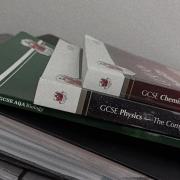
So, what is it?
Global warming is the unusually rapid increase in Earth’s average surface temperature over the past century primarily due to the greenhouse gases released as people burn fossil fuels. The global average surface temperature rose 0.6 to 0.9 degrees Celsius between 1906 and 2005, and the rate of temperature increase has nearly doubled in the last 50 years. Temperatures are certain to go up further.
But, how does this affect us and our world?
The increase of earth's temperature results in the melting of the ice caps, the level of water therefore rises – the average global sea level has risen 8.9 inches between 1880 and 2015. That’s much faster than in the previous 2,700 years. This is a massive global issue as it increases flooding, worsens hurricane damage, and leaches saltwater into tidal areas. It increases migration, weakens military readiness, and threatens historical sites. Local governments are outlaying billions to defend against these effects.
Hurricanes and other storms are likely to become stronger. Floods and droughts will become more common.
Furthermore, water temperatures are rising, which could have a detrimental effect on the inhabitance of the sea, rising temperatures cause coral bleaching and the loss of breeding grounds for marine fishes and mammals. Marine fishes, seabirds, and marine mammals all face very high risks from increasing temperatures, including high levels of mortalities, loss of breeding grounds, and mass movements as species search for more favourable environmental conditions.
Forest fires as well as wildfires also occur because of global warming meaning fewer trees in our forests providing oxygen and habitat to many animals causing endangerment to many species. Affected wildlife populations can sometimes move into new spaces and continue to thrive. But continuous human population growth means that many land areas that might be suitable for such “refugee wildlife” are already colonized. Cities and roads can act as obstacles, preventing plants and animals from moving into alternative habitats.
Nine-year-old Rebecca’s opinions on global warming:
“I think global warming is a threat to the world and everybody should stop it by helping one little bit but it would be very hard.”
How do you think global warming is going to affect your future?
“I hope it doesn’t and I’m very scared about that but I hope that the people in the world now can fix it so it won’t.”
So, are you doing anything to stop global warming?
“Well I would like to but I don’t know how.”
Do you think there should be better education for younger people – like yourself - on global warming?
“Yes, I think that we should we should learn more about it since it might affect our future and I don’t know much about this crisis.”
So, what do you know about global warming?
“I think that by running your cars, all the stuff that comes out of it will disturb our world and lots of people are trying to stop it but some people just don’t care or know how to.”
So this explains to us how educated young people are on the crisis of global warming and how it could affect their future. We need better education on this as young kids - as you can see - want to help but just don’t know how. How does this then affect them in the future? Global warming is something they will experience in greater depth than the generation before. If the world carries on as it does now there will be a catastrophic effect on our world as you see it today.





























